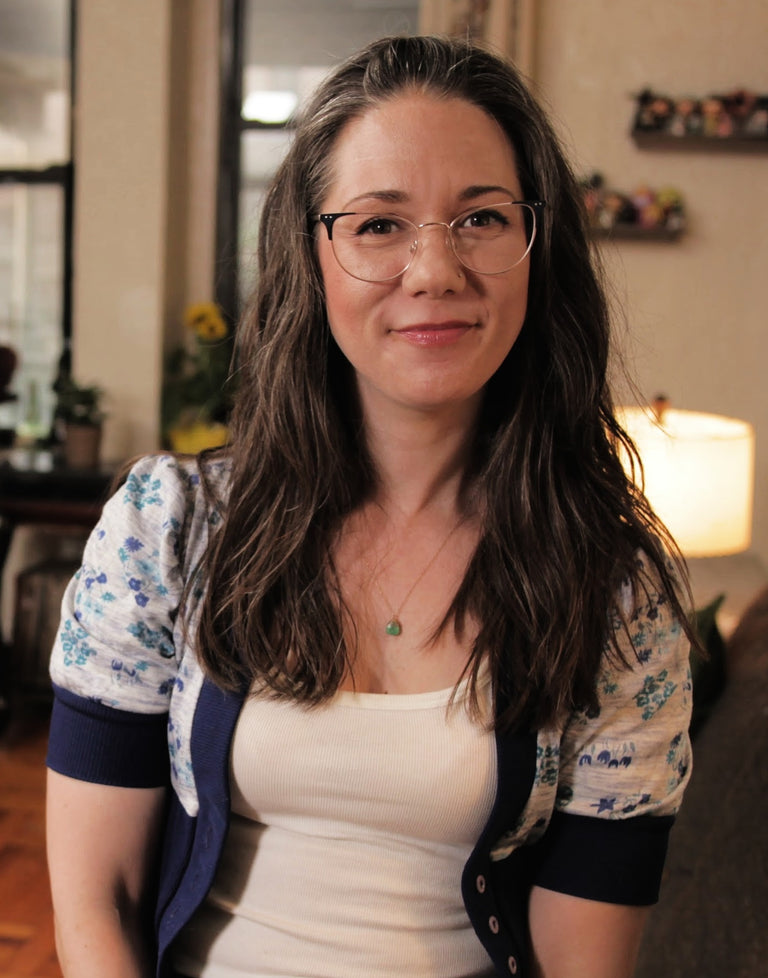Shedding is part of the natural cycle of hair growth and isn’t generally a cause for concern. But if you’re noticing more loose strands of hair than usual, it can be worrisome if not downright stressful.
A sudden increase in hair shedding can be triggered by a number of underlying causes. Keep reading to understand some of the most common triggers for sudden or excessive shedding, along with what you can start doing to combat hair loss.
How Much Is Too Much?
We all shed hair every day; it’s a normal part of the hair growth cycle. Our hair follicles go through different phases:
- Growing
- Transition
- Resting
- Shedding
Each follicle is moving through its own cycle, meaning that our follicles aren’t all operating on the same schedule. At any given time, about 10% of our follicles are in the resting phase that precedes shedding. Since the average human scalp has about 100,000 follicles, this means that losing about 50-100 hairs per day is considered to be perfectly normal.
While it can be hard to know exactly how many strands you’re losing on a daily basis, most people have a sense of what’s normal for them. If you notice that your daily shedding has gone up, it’s probably a good indicator that something has changed in your scalp’s ecosystem and could require some attention.
Shop: The Best Shampoos for Thin Hair
What Can Cause Sudden Hair Loss?
When many people think about hair loss, they often associate it with the most common form of hair loss: androgenetic alopecia. Also known as male/female pattern baldness or male/female pattern hair loss, this specific form of hair loss is easily recognized as thinning hair and a receding hairline.
But androgenetic alopecia is just one type of hair loss. Plus, it’s not one that typically causes sudden and drastic shedding but rather causes gradual thinning over time.
So what causes sudden and drastic hair shedding?
When it comes to hair thinning and loss, there are many potential triggers and underlying causes. These are some of the most common triggers for sudden and/or drastic hair shedding and loss.
Shop: GRO Revitalizing Scalp Massager
Telogen Effluvium
Telogen effluvium (TE) is one of the most common causes of hair loss. At its core, telogen effluvium is caused by a triggering event that causes a temporary disruption to the hair growth cycle. The triggering incident, which could be a source of physical or mental stress, prematurely moves follicles from the active growth to the resting (telogen) phase of the cycle.
After about three months of resting, all of a sudden, hair shedding drastically increases. Because of the delay, people don’t often make the connection between the triggering event and the hair loss, but in fact, TE can be caused by a number of different physical or mental triggers:
- Severe illness, like COVID-19 infection
- Surgery
- Childbirth
- Dramatic weight loss
- An intense or stressful life event, like the loss of a loved one or job
While hair shedding with TE is very sudden and oftentimes drastic, it rarely results in complete hair loss and typically resolves on its own.
Anagen Effluvium
Anagen effluvium, like telogen effluvium, is also caused by a disruption to the hair growth cycle. With anagen effluvium, however, the disruption happens during the active growth phase, causing hair to skip the resting and shedding phases: Hair is shed during the active growth (called anagen) phase of the cycle. This form of hair loss is sudden and extensive, often resulting in near complete baldness.
The causes of anagen effluvium are most often tied to chemical or physical triggers. Patients undergoing chemotherapy often experience anagen effluvium since the medications used to kill cancer cells also negatively impact follicles. Endocrine and autoimmune conditions might also cause anagen effluvium.
Anagen effluvium is often resolved when patients stop chemotherapy or by treating the underlying medical condition tied to the hair loss.
Medications
Certain medications can disrupt growth cycles and induce a case of TE, while still others can contribute to hair loss as an ongoing side effect.
While chemotherapy is the most well-known medication causing hair loss, others include:
- Thyroid medications
- Birth control
- Beta-blockers
- Anticonvulsants
- Antidepressants
- Anticoagulants (blood thinners)
If you’ve started a medication and are noticing a drastic increase in hair shedding, check in with your doctor before stopping or otherwise changing your regimen.
Medical Conditions
Medical conditions might also trigger a temporary case of TE, or they might otherwise impact the hair follicles in more permanent ways.
Thyroid disorders may directly impact your follicles since thyroid hormones are important to hair follicle function. Thyroid disorders like Hashimoto’s and Graves' are caused by an underlying autoimmune condition, while other autoimmune conditions, like alopecia areata and lupus, have been associated with sudden hair loss, too.
Endocrine diseases that disrupt hormone levels could lead to hair loss. Polycystic ovarian syndrome (PCOS) is a common condition among women that is known to disrupt hormones and can impact hair. Diabetes and insulin resistance can also impact hair follicle function.
This list is not exhaustive but includes medical conditions that are commonly linked to hair loss. Be sure to speak with a doctor if you think there might be a condition underlying a sudden increase in hair shedding.
Nutritional Deficiencies
Another common source of increased hair shedding could be an underlying nutritional deficiency. Our follicles need a number of different vitamins, minerals and nutrients to grow healthy hair, and if one of these is lacking, it can take a toll on our hair density.
Deficiencies in iron, zinc, protein and B-12 are among the most common deficiencies linked to hair shedding, but another vitamin deficiency could be at play, too.
When Should I See a Doctor?
If you’re noticing sudden and excessive hair shedding, it’s best to see a doctor.
“It is crucial to consult a doctor and get diagnosed because the best course of action for you will depend on the underlying reason for your hair loss,” said Dr. Michael May, medical doctor and director of Wimpole Clinic. “Also, do not wait for things to get worse. The sooner you address hair loss problems, the more likely you will avoid permanent harm.
Not only can medical doctors order blood work to help isolate the cause, but dermatologists can closely examine the scalp and follicles. They will likely carry out other common tests to diagnose hair loss, like the hair pull test, and may even take a small biopsy of your scalp for analysis.
Your primary care physician or dermatologist will take care to rule out other common forms of hair loss, such as traction alopecia, frontal fibrosing alopecia or central centrifugal cicatricial alopecia, for example.
How Is Sudden Hair Loss Treated?
Treatment of sudden or drastic hair loss depends on what is causing the hair loss to begin with. If there is an underlying autoimmune condition, hormonal imbalance or other medical condition, hair growth will often return to normal when the root cause is treated.
Some good news is that the most common cause of sudden and drastic hair loss, telogen effluvium, typically resolves on its own without needing hair loss treatment.
Tips for Supporting Holistic Hair Health
Hair health is a holistic concern! Here are some tips for taking a bigger picture view of hair wellness.
Be Gentle
Sudden or drastic hair loss means that hair follicles have been disrupted in some way, so hair care and hair styling needs to be gentle. Skip tight hairstyles, heat styling and chemical treatments whenever possible.
Manage Stress
Stress can directly impact hair follicles. While known stress management tools like yoga and meditation are great options, stress management also includes things like diet, exercise and sleeping habits, too.
Focus on Diet
A varied and diverse diet is a great way to help your follicles operate at their best, so be sure to focus on a healthy diet filled with fruits, vegetables, whole grains and healthy sources of protein. You might also want to include an all-vegan and gluten-free supplement formulated specifically to support healthy growth. Look for a daily hair vitamin that contains biotin, zinc and vitamin B-12, among other nutrients necessary for hair growth.
Up Your Hair Care Game
Many hair products contain synthetic ingredients and harsh chemicals that can actually make it harder for your follicles to do their thing. Shampoos and conditioners that you use frequently could be a great place to make a switch, and adding an all-natural and vegan protein-rich option.
Adding scalp massage to your routine can also help stimulate essential blood flow to the follicles and may help improve growth. “Scalp massages support hair health and prevent hair loss by promoting blood vessel vasodilation, which allows more nutrients and oxygen to reach the hair follicle,” said Dr. Anna Chacon, a board-certified dermatologist with MyPsoriasisTeam.
Be Patient
Hair growth takes time. On average, your strands will grow about a half-inch per month, so after a bout of drastic shedding, it will take several months for hair to start to appear fuller. But perhaps more importantly, being stressed about hair loss can impact hair loss! Seek out the medical help you need to address the shedding, then be patient as your body recovers.
The Takeaway
Losing hair can be a worrisome and stressful experience. Sudden and drastic hair shedding is often the result of a temporary hair loss condition called telogen effluvium, which typically resolves completely on its own. However, there are many types of hair loss, and there may be other underlying causes for sudden and drastic hair loss. If you’ve noticed excessive hair loss, see a doctor who can determine the underlying cause and offer a treatment plan. Additionally, by seeking treatment earlier, you can prevent further hair loss.
Focus on taking care of your general health as a holistic approach to hair health. Eat a balanced diet, manage stress levels, get regular exercise, adequate sleep and use high-quality hair products —your hair follicles will thank you!
#include-related-slider#
More From VEGAMOUR
- Shop: Shampoos for Thinning Hair
- Do Split Ends Stop Hair Growth?
- 5 Things to Avoid If You Have Thinning Hair
- 7 Hair Growth Secrets Exposed
Photo credit: Flora Westbrook/Pexels
Back


















